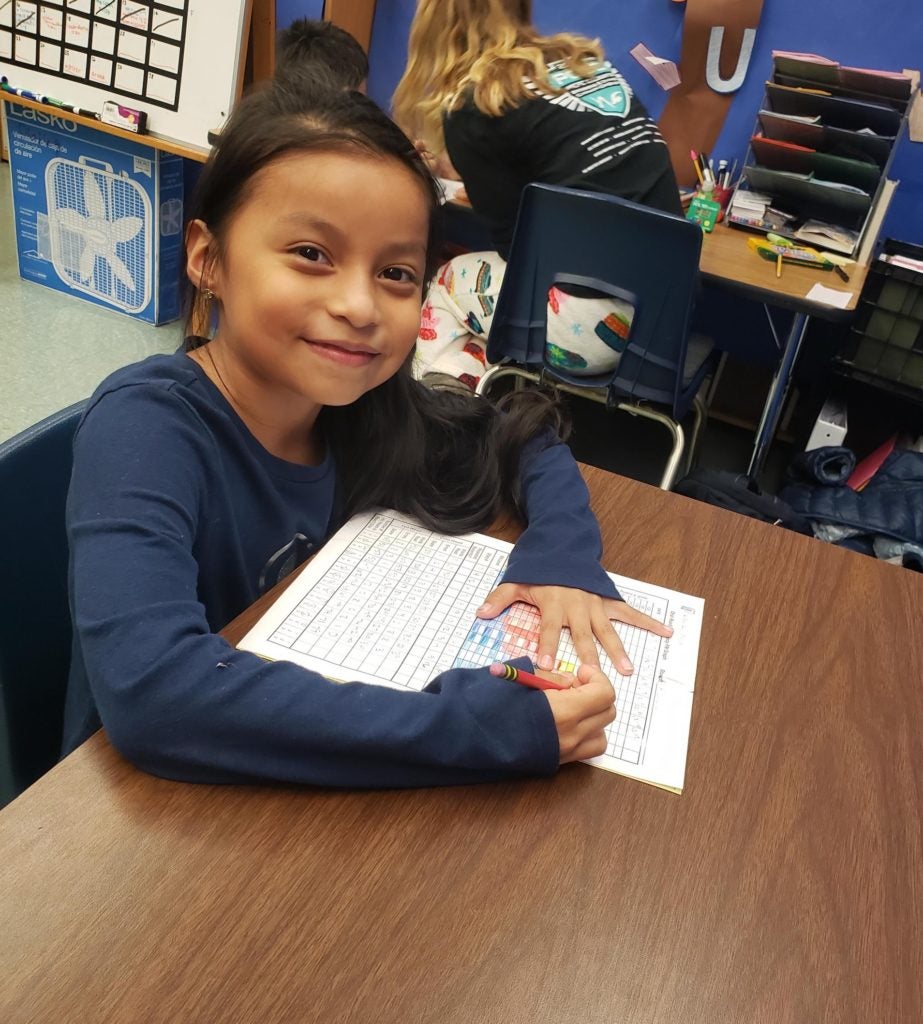By Diana Cabrera, 2019-2020 Literacy First Tutor

At the beginning of the school year, I began working with a first grader named Arielle. She knew her letter sounds and could blend them into syllables, for the most part, but when it came to reading, she would switch all sorts of letters and vowels, sometimes even guessing the entire word. I could see her frustration rise when I’d ask her to try reading a word again. She’d often forget to recode, so that was an additional task she needed to work on.
Weeks passed by, and it seemed to me as if Arielle wasn’t getting better because she would continue to struggle in the same areas. However, my supervisor would tell me that she was on the right track, but that I could try reading games such as “Guess the Word” and “Syllable Dice” to help improve her ability to recognize and recode words.
Progress was slow and seemed very unattainable sometimes, but I knew I couldn’t give up on Arielle. In fact, she made me work even harder. What gave me hope is that she actually loved to read; she just had a difficult time with her fluency.
After winter break, my supervisor told me to start working on Read Naturally passages with both of my first graders. I could feel my brain begin to melt. I felt that it was possible for Arielle to read, even if it was slowly, but I already knew she would become overwhelmed with knowing she had to read an entire paragraph.
Surely, the first days of fluency work were difficult, both for me and for Arielle. We had to adjust a heavier workload into the same 30-minute timeframe. I made a colorful “to-do” list to help keep track of everything we had to do during the lesson. Not only was it engaging, but it actually worked! So now, the difficult part was the actual reading. The number of errors she would make during the Alma phonics intervention was no longer acceptable, and she would have to identify those errors all on her own during hot reads (when a student reads a passage they’ve practiced previously) in Read Naturally.
At first, errors were high, but I knew she was only adjusting to this new type of work. At the beginning of each lesson, I would say, “Okay, remember, we are going to read carefully, but not too slow. We are going to read complete words. We are going to fix our errors. And, we won’t get distracted.” It became a routine. Arielle stopped guessing words. She would recode words she sounded out. She would get zero errors most of the time, and she would increase the number of words per minute.
I felt so proud of how far Arielle had come. She felt proud of herself, too. I knew she would only get better from there on out. I hope she remembers the skills I have taught her and that she continues to practice at home. It saddens me to think that I won’t be able to work with Arielle anymore, but at least I know that she is completely capable of continuing her reading journey, because Literacy First served her well.
